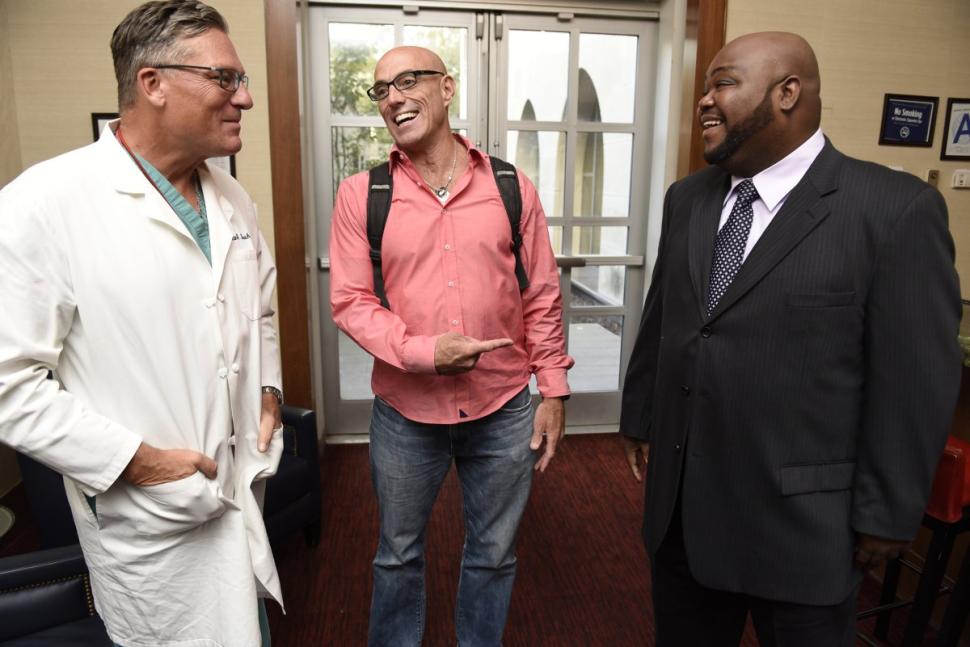Andy Mai, Ginger Adams Otis New York Daily News
Ten years ago this month, police officer Tarrell Lee nearly died when an SUV plowed him over as he directed traffic in midtown.
Lee, 37, was kept in a medically induced coma for more than four weeks as doctors at New York-Presbyterian/Weill Cornell Medical Center performed surgery after surgery — trying to save his life.

From left, Dr. Dean Lorich, director of orthopedic trauma service at New York-Presbyterian, talks to former patients Matt Long, a retired firefighter and Tarrell Lee, a NYPD traffic enforcement officer. Barry Williams for New York Daily News
In the end, they kept him alive, but couldn’t save his right leg.
When Lee came out of his coma, the next phase of his recovery began.
He spent five long, painful months in rehabilitation — but thanks to a strange twist of fate, he didn’t have to go through it alone.
A firefighter was always there, working alongside him.
It was Matt Long, who in December 2005 — just a few months after Lee’s horrific September 12 accident — was run over by a bus.
The 2-ton vehicle hit Long, now 49, as he bicycled up Third Ave. near 52nd St. He was dragged underneath the charter bus as it took a right turn and knocked him down.
First responders found him tangled in the frame of his bike, with multiple broken bones and internal injuries.
Like Lee, he also had to undergo emergency surgery and was listed in critical condition. Also like Lee, the firefighter was determined to get back on his feet and reclaim his life — as quickly as possible.
For Lee, things were radically different. He lost his right leg and had nerve damage in his left. Every arduous movement exhausted him.
“There was a lot of dark days where you didn’t think you could do it. You doubt yourself because the work is so hard. A lot of days I would cry,” Lee said Monday, at a celebratory reunion with the medical team who saved him and the firefighter who helped him battle through the pain.
“Having people in your corner telling you you could do it, you have no choice but to do it. Cause you don’t want to sit around feeling sorry for yourself,” said the Queens Village resident.
Long was going through much of the same therapy as Lee.
Although the firefighter didn’t lose a leg, his injuries were so severe doctors gave him a 1% chance of survival.
With pins and screws in his body and a right leg that was an inch shorter than his left, Long had to relearn how to walk — at the same time Lee was learning how to walk with a prosthetic.
Long said he and Lee would push each other to do more each session.
“We kind of coached each other along,” said Long.
Every day, he said, he’d ask the cop, “Tarrell you ready to go?” And Lee would say, “Yup, Matt, you’re doing it. I’m doing it,” Long said.
Many of the doctors that helped Lee and Long were present at the 10-year reunion Monday.
“There’s no prouder thing other than my wife giving birth,” said Dr. Dean Lorich, the orthopedic trauma surgeon at New York-Presbyterian/Weill Cornell who tended to both Lee and Long.
“This is a present for all of us,” the surgeon said.

